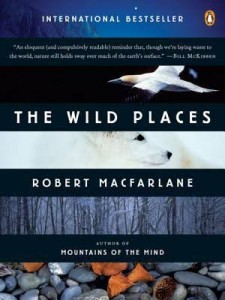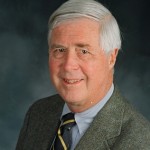 Last year, at our son’s suggestion, I read and reviewed with enthusiasm Robert Macfarlane’s The Old Ways (2012), his recounting of extensive walks in Great Britain, Spain, Palestine, and Tibet (see LymeLine.com review of Oct. 12, 2014.) That led me to his Landmarks (2015) and now to an earlier work, The Wild Places.
Last year, at our son’s suggestion, I read and reviewed with enthusiasm Robert Macfarlane’s The Old Ways (2012), his recounting of extensive walks in Great Britain, Spain, Palestine, and Tibet (see LymeLine.com review of Oct. 12, 2014.) That led me to his Landmarks (2015) and now to an earlier work, The Wild Places.
What begins as a eulogy for our disappearing wilderness becomes an elegy, even a celebration of remoteness, privacy and “the wild.” But the reply of the wild, wherever he finds it, at the remote corners of the British Isles or in his own Cambridge backyard, is “reports of my demise are premature!”
Macfarlane, a don at Emmanuel College, Cambridge, mixes remarkable research, reading and language, to explore both geographic and intellectual wildness. On his perambulations, he is always picking up small rocks, leaves, stems, feeling them, admiring them, and saving them for his library. He links every trek with apt, far-ranging quotations from a global entourage of writers. And his words, what words …
Consider:
- “ideas like waves have fetches.”
- The sky a “slurless blue”
- The “grain of the mind”
- “a row of hawthorns quaffed eastwards by the onshore winds”
- the “krekking of a raven”
- “small waders – knots, plovers, turnstones – form their palping jellyfish-like shoals”
- “a gang of rooks chakked over the corn stubble”
- “I had a heptic memory, too.”
- A rock that was “knapped out.”
Do you recognize any of the places he visited: Ynys Enlli (Scotland), Coruisk (Isle of Skye), Rannoch Moor (near Glencoe), Black Wood (east of Rannoch Moor), Cape Wrath (Scotland north coast), the Holloways (Dorset), Orford Ness (Suffolk), and Burren (north of County Clare, Ireland)? Macfarlane comes to acknowledge that wildness is often found close to home. How many of us know Hog Pond (the old name), Cedar Pond, Brown Hill, Joshua Rocks, Whalebone Creek, Nickerson Hill, Moulson’s Pond, Oliver’s Hole or Rat Island?
Wildness, to this professor, is “a quality to be vanquished and to be cherished.” It has “implications of disorder and irregularity” but it is also “an expression of independence from human direction … containing an energy both exemplary and exquisite.” Wild places remind us “of the narrow limits of human perception, of the provisionality of (our) assumptions about the world.” Our response: “a brief blazing perception of the world’s disinterest” in what we humans have created — they give us “this sense of the human presence as being something temporary.”
Fellow wanderers appear. Macfarlane asks a “Helen” to join a walk seeking birds: falcons, tiercels, ospreys, goshawks, and peregrines. None other than Helen Macdonald, also a professor at Cambridge, whose H Is For Hawk I enjoyed earlier this year.
The Wild Places reminded me of my own traipsing along the public footpaths of West Sussex and the South Downs, in the fall of 1978, and along the wanderwegs of St. Gallen and the Appenzell in Switzerland in the 1980s and 1990s. Plus the trails of Nehantic State Forest in the 1990s …
Macfarlane suggests wildness is an attribute to be carefully enjoyed, with both sight and sound: “rooks haggled in the air above the trees … the noise of the wood in the wind; a soft marine road. It was the immense compound noise of friction – of leaf fretting on leaf, and branch rubbing on branch.”
His admonitions: listen and look. Wildness may be close at hand.
Editor’s Note: The Wild Places by Robert Macfarlane was published by Penguin, New York, 2007.
 About the Author: Felix Kloman is a sailor, rower, husband, father, grandfather, retired management consultant and, above all, a curious reader and writer. He’s explored how we as human beings and organizations respond to ever-present uncertainty in two books, ‘Mumpsimus Revisited’ (2005) and ‘The Fantods of Risk’ (2008). A 20-year resident of Lyme, he now writes book reviews, mostly of non-fiction that explores our minds, our behavior, our politics and our history. But he does throw in a novel here and there. For more than 50 years, he’s put together the 17 syllables that comprise haiku, the traditional Japanese poetry, and now serves as the self-appointed “poet laureate” of Ashlawn Farms Coffee, where he may be seen on Friday mornings. His wife, Ann, is also a writer, but of mystery novels, all of which begin in a bubbling village in midcoast Maine, strangely reminiscent of the town she and her husband visit every summer.
About the Author: Felix Kloman is a sailor, rower, husband, father, grandfather, retired management consultant and, above all, a curious reader and writer. He’s explored how we as human beings and organizations respond to ever-present uncertainty in two books, ‘Mumpsimus Revisited’ (2005) and ‘The Fantods of Risk’ (2008). A 20-year resident of Lyme, he now writes book reviews, mostly of non-fiction that explores our minds, our behavior, our politics and our history. But he does throw in a novel here and there. For more than 50 years, he’s put together the 17 syllables that comprise haiku, the traditional Japanese poetry, and now serves as the self-appointed “poet laureate” of Ashlawn Farms Coffee, where he may be seen on Friday mornings. His wife, Ann, is also a writer, but of mystery novels, all of which begin in a bubbling village in midcoast Maine, strangely reminiscent of the town she and her husband visit every summer.